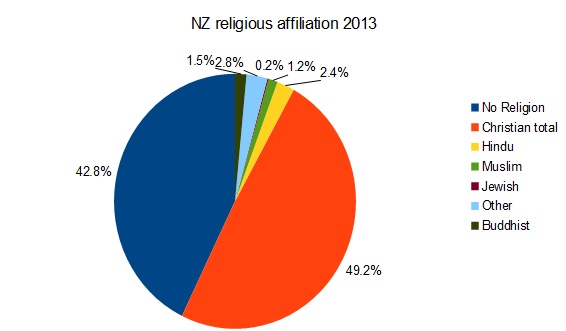The Greens' Kennedy Graham has a pair of posts looking at the climate change policies pursued by
Denmark and
Sweden. Both countries have pursued strong regulation-based policies right from the start, and as a result they have significantly reduced their emissions. By contrast, New Zealand sat on its hands for 18 years, before passing a largely ineffective market-based policy in 2008, which was then immediately gutted by the incoming National government. The result is that our emissions have risen by 20% since 1990, and look set to rise even higher.
So, assuming that a future government actually wants to fix this problem (alternatively: will be denied confidence and supply by the Greens unless it promises serious policy), what should it do? We could do a lot worse than following the Scandinavian examples Graham cites.
Electricity isn't really a problem for us - while the 90's saw the construction of gas power plants, we've begun a shift to wind and geothermal without needing the subsidy mechanisms employed overseas. Restoring the thermal ban would help cement that trend and prevent wind farms from being monstered by pollution-subsidised gas or coal, but we shouldn't need to do much else. Our wind resource is good enough to stand on its own two feet if pollution subsidies are removed, and there's a huge backlog of consented wind protects waiting to be built.
Our real growth areas of emissions in the past 20 years have been transport and agriculture - cars and cows. Transport emissions have increased by over 5 million tons since 1990, agricultural emissions by 3.5 million tons. The former has been driven by an increase in car and truck use, but that has
now plateaued - we
hit peak car in 2005, and peak truck a few years later. So policy doesn't need to be aimed at getting people to drive less, so much as getting them to drive more efficiently. And on that front there seems to be a host of policies we can steal from Sweden and Denmark which help: a carbon tax on fuel (technically done by the ETS, but compromised by pollution subsidies), mandatory emissions standards on new cars, taxes on inefficient vehicles / rebates for efficient ones, and an obligation to sell biofuels should do the trick. These are long-term policies, not a magic wand which will work overnight, but they should gradually reduce transport emissions.
Agriculture is more difficult, but even there we could go a long way simply by taxing the crap out of nitrogen-based fertilisers (which led to nitrous oxide emissions, as well as polluting waterways). We will also need regulatory solutions around stock densities. In the longer term, it has become clear that
our environment cannot stand so many cows shitting and pissing into our rivers and water-table. Which means that we need to reduce overall numbers. If dairy farmers want to retain their incomes, they will need to increase the efficiency of their herds, or invest to create higher-value products rather than just exporting raw milk powder. Or find something else to farm that doesn't trash the environment and poison their neighbours.
Denmark and Sweden managed these sorts of changes without any appreciable economic damage. We can to. We just need to decide to do it. Hopefully we'll be able to after the next election.

